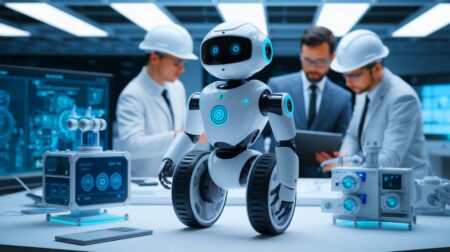| IN A NUTSHELL |
|
At the forefront of artificial intelligence development is Meta’s chief AI scientist, Yann LeCun, who envisions a transformative future for AI. According to LeCun, the current AI systems, dominated by generative AI and large language models (LLMs), are on the brink of obsolescence. In their place, he predicts the rise of a “new paradigm of AI architectures” that will surpass existing capabilities. This evolution is anticipated to unfold within the next three to five years. Equally compelling is his prediction of a “decade of robotics,” where AI and robotics will merge to unlock a new era of intelligent applications. These bold claims signal a dynamic shift in the landscape of artificial intelligence.
The Limitations of Current AI Systems
While current AI systems have made significant strides, they are not without their limitations. LeCun identifies several critical shortfalls in these systems, which hinder their ability to exhibit truly intelligent behavior. One major issue is their lack of understanding of the physical world. Unlike humans, AI systems currently lack the ability to perceive and interact with their surroundings in a meaningful way. This gap in understanding is a significant barrier to achieving more advanced AI capabilities.
Additionally, the absence of persistent memory is another limitation. Current AI models do not have the ability to retain and recall information over time, which is essential for learning and decision-making processes. Furthermore, these systems struggle with reasoning and complex planning capabilities, which are crucial for navigating and making informed decisions in dynamic environments. As LeCun points out, the AI systems of today are largely focused on pattern recognition but fall short in areas that require deeper cognitive processing.
Emergence of World Models
One of the most promising developments in AI is the concept of “world models.” These models aim to equip machines with a more profound understanding of the real world, including traits such as memory, common sense, intuition, and reasoning capabilities. This goes beyond the current focus on pattern recognition and moves towards machines that can build mental models of the world.
LeCun suggests that these world models could revolutionize AI within the next three to five years. The vision is to create systems that not only observe the world but also interact with it and learn from these experiences. Such advancements could lead to AI systems that possess a level of common sense and the ability to understand complex dynamics. While the exact timeline for these developments remains uncertain, the potential for transformation is immense.
The Decade of Robotics
In conjunction with advancements in AI, LeCun foresees a significant rise in robotics, which he refers to as the “decade of robotics.” This period will likely witness the integration of AI into robotic systems, enabling them to perform tasks that require a deep understanding of the physical world. Robotics has the potential to revolutionize various industries by introducing machines capable of human-like intelligence in real-world settings.
Leading companies like Meta and OpenAI are actively exploring this realm. OpenAI, for instance, is forming teams dedicated to developing adaptive and versatile robots that can function effectively in diverse environments. LeCun emphasizes that the capabilities of these future robots should surpass even the intuitive understanding of a cat, a benchmark that current AI systems have yet to achieve. This progress in robotics will likely drive significant changes across multiple sectors, from manufacturing to healthcare.
Revolutionizing the Future of AI and Robotics
The potential impact of these advancements in AI and robotics is vast. As new AI architectures and robotic systems come to fruition, they will likely redefine what is possible in terms of intelligent applications. The ability to integrate more advanced cognitive processes into machines could lead to breakthroughs in areas such as autonomous vehicles, personalized healthcare, and smart infrastructure.
As we stand on the cusp of this new era, the question remains: how will society adapt to and harness the power of these revolutionary technologies? The opportunities are boundless, but so are the challenges. As AI and robotics continue to evolve, they present both exciting possibilities and complex ethical considerations. What will our world look like when machines surpass their current limitations and truly become intelligent entities?
Did you like it? 4.2/5 (26)








Wow, if AI can really outgrow ChatGPT, does that mean it’ll be able to write my essays for me soon? 😂
LeCun’s vision sounds promising, but are we ready for AI with common sense and reasoning? 🤔
I’m skeptical. We’ve heard big promises from tech companies before. What makes this time different?
Thank you for this insightful article! It’s exciting to see how AI and robotics might evolve in the coming years. 🙌
How will these advancements address current AI biases? That’s a major concern for me.
Imagine robots with human-like intelligence! Are there any risks we should be worried about?
If AI surpasses current limitations, could it potentially replace more jobs? 😟
Interesting read! But what’s the timeline for these developments? Five years seems quite optimistic.